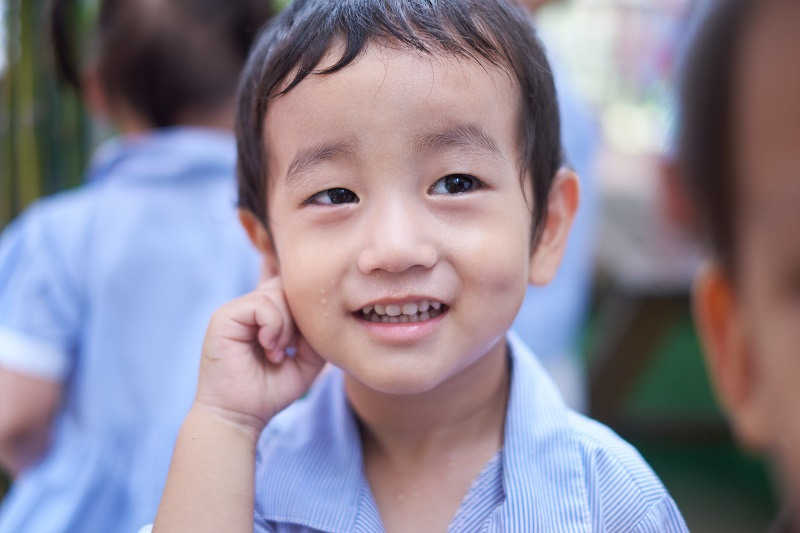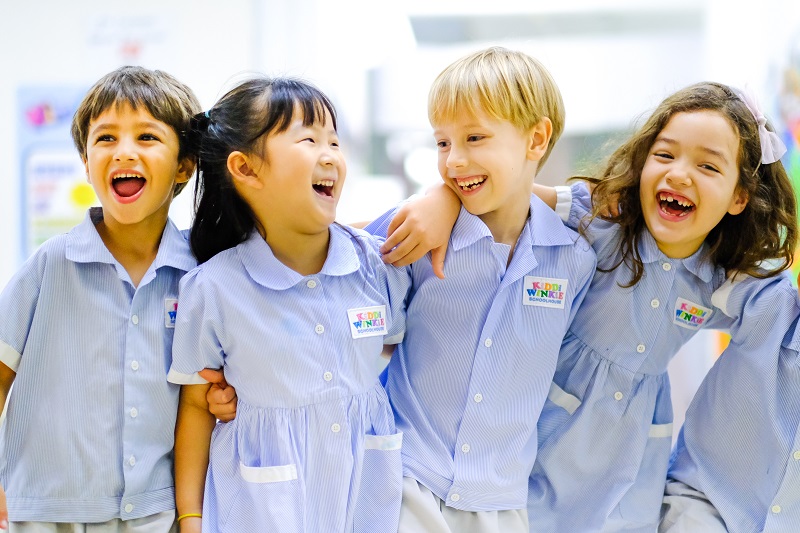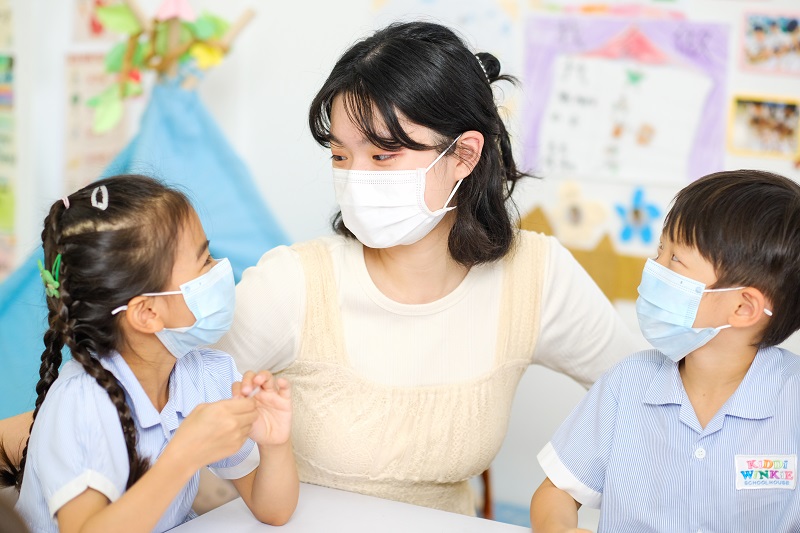
Is your child off to school for the first time? It is a big milestone in your child’s life.
For most children, this is the first time they will be separated from their parents and caregivers for extended periods of time, and it is only natural for both parents and children to feel both excitement and anxiety.
Why do children feel separation anxiety?
Object permanence is one of the developmental milestones that most children reach in their first year of life. When they learn that items and people still exist even though they cannot be seen or heard, that is when they also begin to realise that they can look for the missing item, and express unhappiness that they cannot find it.
During that phase, it is also when babies start to seem more clingy and become easily upset and afraid when they are separated from their parents or caregivers. As they grow older, they naturally understand that their parents are their main source of comfort and love, and a prolonged separation can be very upsetting for them.
Children may also feel more anxious if there are other big changes in their life, such as moving house, or when there is a new addition to the family. Separation anxiety may also show up only a few weeks after they have started school, after the novelty of the new experience has worn off.

What are some signs of separation anxiety in preschoolers?
Crying is the most prominent sign of separation anxiety. Your little one may make it to the school gate just fine, but the moment of parting is the real test. When they are confronted with the reality that their parents are about to hand them over to a teacher, they may suddenly burst into tears and cling to you, refusing to let go.
Some little ones manifest their anxiety in the form of anger and tantrums. They may kick and scream, rage and throw tantrums. However, their anger is merely a front. This is common in preschoolers struggling with separation anxiety. Others may seem compliant and obedient, but they may become unusually quiet and withdraw into themselves. This is more obvious in children who are more vivacious and outgoing at home, but are very reserved in school.
Some children may show regressive behaviours. For example, potty-trained preschoolers may start to wet their pants or ask to wear diapers again. This might happen because they seek to return to comforting behaviours, or see a connection between being a baby and having their parents and caregivers with them all day long. Also, when a little one is struggling with a new developmental milestone, it is common for them to temporarily lose ground in something they have only recently learnt.
What are some ways we can alleviate separation anxiety?
Routines are important for children to be well-balanced. If possible, try not to rush them through breakfast or out of bed to make it to school. Gradually shift bedtimes earlier so that they can wake up in the mornings refreshed and ready, with plenty of buffer time to head to school in a relaxed state.
Some parents may think that sneaking out is the best way to handle separation anxiety, but this can actually worsen things and lead to trust issues. Prepare your child by talking through the handover procedure regularly with them.
Say a loving goodbye, give your little one a hug and a smile and remind them that you will be back later to pick them up. Instead of giving them a time, give them a frame of reference – after naptime, or after tea time, so that they have something to look forward to.
It is important to prepare your child beforehand. Visit the school together and make friends with their schoolmates and teachers so that they feel like it is a familiar and friendly environment. Your own positive body language and confidence will also help your child adjust better.
Lastly, acknowledge your child’s feelings. It is okay to be nervous and a little scared, and your empathy will go a long way to help your child feel safe and understood.

Parents can experience separation anxiety too
It is perfectly normal for parents to feel stressed and upset as well. Placing your precious little one into someone else’s hands will be made even more difficult if your child is crying at handover every day.
The best preschools in Singapore will update you with pictures and messages in the first few weeks while you both adjust to a new normal. Some children may cry at drop-off, but very quickly ease in after their parents have left.
It is important that you choose a school that you feel comfortable with. The environment and the teachers should be warm and welcoming. Trust goes a very long way in helping you feel assured and confident that your child is in the best possible hands. As time passes, it will certainly get easier for both of you to part at the school gates.
Come experience the warmth of Kiddiwinkie Schoolhouse
Find out if Kiddiwinkie Schoolhouse is a good fit for you and your child!
Our centres are designed to make children feel at home. Book a tour at your preferred centre, located conveniently in key neighbourhoods as well as near business centres.
Follow us on social media to stay updated on our latest updates and happenings:





